Seed Grant Funded Projects
Learn more about our awardees.
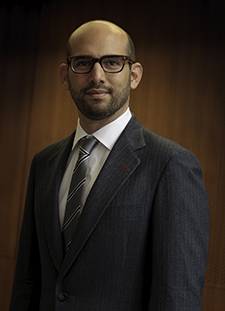
The ability to act flexibly in a complex and dynamic world is a hallmark of human intelligence. This research aims to understand how memory of experiences is formed to aid later decision making in unfamiliar novel contexts. We propose that feature segmentation leads to representations of structured knowledge that allow for flexible predictions and underlie adaptive behavior. Feature segmentation involves factorizing some input (e.g., the elements of a specific experience) into a set of independent features (e.g., the time of day, the location, the individuals present, etc.)—as opposed to representing their conjunction (e.g., a specific memory of an instance the features occurred in conjunction). Features recur across contexts (e.g., we experience the same time of day at many locations) and may be learned on in parallel, affording the type of quickly acquired, generalizable representations that underlie flexible behavior. To test whether humans segment features of their experiences to achieve adaptive behavior, we leverage newly developed computational models, a novel behavioral task that mimics some complexities of real-world experiences, eyetracking, and fMRI. This work will improve our understanding of the representations that underlie flexible human behavior and help characterize general principles of an effective memory system that supports adaptive decisions.

Chiara Galli, Comparative Human Development
Galli’s research examines the treatment of unaccompanied immigrant children facing deportation proceedings in US immigration court. While these children are formally recognized as a vulnerable category in immigration law, they are still not guaranteed free legal representation by the US government. For these low-income children, it is usually impossible to afford the expensive services of private legal firms, and public and private funding for non-profit legal aid organizations that provide free counsel to immigrant children is insufficient to meet demand. This study will examine the determinants of access to legal representation and case outcomes for unaccompanied minors facing deportation proceedings in US immigration court. By examining these two outcomes using a large-scale national administrative dataset, this project wil enhance our understanding of children’s experiences in the US immigration system, which, to date, has been based on ethnographic and qualitative studies that lack generalizability. This study also adds to sociolegal research on the “justice gap”—the difference between the number of people experiencing problems that could benefit from legal assistance and those who receive it—by asking how geographic, procedural, organizational, and client-level characteristics drive inequalities in who gets access to counsel and who is protected from deportation.
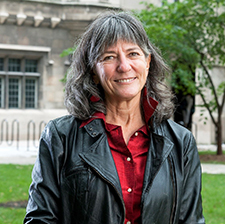
Susan Goldin-Meadow, Psychology
Research team: Anjana Chandran, Doctoral Candidate, Psychology; Susan Fiske, Princeton University
People may communicate openly about their perceptions and stereotypes of other people and groups. However, researchers have observed that in some contexts, egalitarian pressures of time or culture can induce people to behave in a politically correct manner, but then inadvertently express their attitudes in more subtle ways. For example, research suggests that people may express, communicate and transmit social content through non-verbal behaviors.
This project investigates whether and how spontaneous gestures produced in conversation may express stereotype content about other people or groups. Thereafter, it inspects whether this may operate differently in contexts that do or do not call for political correctness. Finally, it considers consequences—whether co-speech gestures generate differential inferences but also different inclusion decisions, depending upon the political correctness context in which these gestures were produced.
The project brings together stereotype content from social cognition research and gesture-based communication and learning research to answer questions that are pertinent to the non-verbal expression and transmission of stereotypes in present-day American society. In doing so, it examines unexplored potential in gesture, but also unexamined non-verbal processes involved in the expression and transmission of stereotypes, prejudice and discrimination.
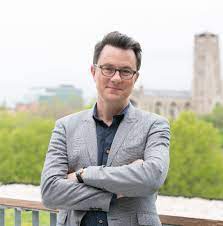
William Howell, Political Science
Research team: Andrew Eggers and Molly Offer-Westort, Political Science
This research program considers how the design of political institutions informs electoral politics. The polarization, demagoguery, and distrust that course through American politics today may originate in more than just individual biases and group hatreds. Rather, they may derive, at least in part, from the rules, relationships, and vestments of authority that define our governing institutions. In this research project, the team will investigate whether this same design also affects the kinds of candidates who seek public office. A variety of powers over budgets, lawmaking, appointments, and rulemaking crucially determine the capacity of office holders to advance policy change. This study will examine how these powers affect the prior willingness of different citizens—defined by their ideology, partisanship, and general interest in governing—to expend the considerable effort and resources required to seek these offices. The initial studies will consist of survey experiments delivered to both convenience and nationally representative samples of US adult citizens. From these pilot interventions, the team hopes to draw lessons that will inform a longer-term field experiment to be conducted with a candidate recruitment firm.
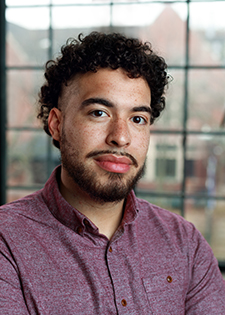
On September 8, 2017, Ragged Island in the southern Bahamas suffered a direct hit from Hurricane Irma. After the storm, the National Emergency Management Agency declared the island “uninhabitable” due to its lack of public institutions and services. Accordingly, the fate of this island embodied the larger struggle for habitability in a region on the front lines of climate crisis. The life-and-death stakes of this struggle heightened in September 2019, when Hurricane Dorian struck the Abaco Islands with more than seventy deaths confirmed after the storm. In the Caribbean, climate change represents a decisive battleground for a habitable future. With the aid of multinational capital, solar microgrids are promoted to insulate the region from climatic threats. Throughout the age of fossil fuels, the capture of solar energy fueled fantasies of limitless growth unmoored from the material confines of carbon fuels. “The Uninhabitable Archipelago” will examine the production of this fantasy by entrepreneurs, technocrats, and politicians and the laborious realities of microgrid installation and maintenance. Through ethnographic research with corporate officials, renewable energy engineers, microgrid technicians, and solar energy consumers, this project considers how the political horizon of habitability is secured against the existential threat of climate collapse in the Caribbean.

James Robinson, Political Science
Research team: Maria Angelica Bautista, Harris School; Chima Korieh, Marquette University and University of Nigeria, Nsukka; Francis Njoku, University of Nigeria
The overwhelming fact about the political history of Africa is that the type of centralized states that emerged in Eurasia, and even the pre-Columbian Americas, never developed in Africa. Africans were heavily averse to the emergence of centralized authority because they viewed it as inconsistent with, and threatening to, the basic principles and values of their societies. A consequence was that at the time of the onset of European colonialism, Africa was divided into thousands of independent polities. In this research project we pose the question: how did all these polities live together so effectively? We hypothesize that just as Africans developed norms and practices that made it very difficult to concentrate power, they also developed those which fostered co-existence, even if not completely peaceful, with neighboring polities. We further conjecture that basic aspects of African ontology and social structure, particularly religious beliefs and the nature of landholding, made the type of territorial aggrandizement characteristics of Eurasia states, anomalous in Africa. We will test our hypothesis using archival and original data collected in Eastern Nigeria.
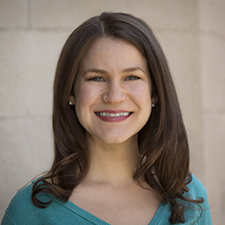

Monica Rosenberg, Psychology
Yuan Chang Leong, Psychology
Social relationships exert a powerful influence over many aspects of daily life, including health, well-being, and professional success. Individuals who are better able to form accurate perceptions of their social networks are more likely to, for example, know who they can count on for help. An important aspect of forming accurate social percepts is updating knowledge about relationships in light of new information. The goal of this project is to understand the cognitive and neural mechanisms supporting this process. We will collect functional magnetic resonance imaging data as people watch a naturalistic narrative that reveals surprising connections between characters. We will examine how brain activity changes as people learn about relationships between the characters and how these changes are related to their impressions of the characters. Results from this work can provide new insights into the nature of social inferences.
Eman Abdelhadi, Comparative Human Development
This project investigates why individual women in the United States stop wearing the hijab (Muslim headscarf). Previously, research has primarily focused on women who chose to wear the hijab and how it impacted their identity. In this pilot study, Abdelhadi will conduct life history interviews of women in U.S. cities with large Muslim populations who have removed the hijab. Abdelhadi will examine the circumstances that led to the removal of the hijab and the consequences thereof, in order to fill an empirical gap in the literature and extend or revise existing theories of role exit.
This innovative study is designed to assess democracy in terms of people’s everyday and accumulated experience, or what can be described as “democracy in practice,” in order to understand why, despite strong support for democracy, people in many developing countries remain open to authoritarian forms of government. Garrido seeks to illuminate the underlying sensibility between people’s disparate attitudes towards democracy and to identify the “cognitive contexts” in which these attitudes appear self-evident. Instead of utilizing traditional democracy criteria including successful elections, the quality of institutions, and democratic attitudes, Garrido will combine ethnographic, comparative historical research, and theory building with theory testing to produce a more generalizable understanding of democratic backsliding in the context of the Global South.
Howard Nusbaum, Psychology
Anna Clebone, Anesthesia and Critical Care
Keith Ruskin, Anesthesia and Critical Care
This project, joint between the Department of Psychology and the Department of Anesthesia and Critical Care, represents a novel approach to understanding the causal mechanisms underlying the stabilization of long-term memories and provides a new approach to studying consciousness and unconscious processes that are critical to learning, memory, and thought. The research team hypothesizes that sleep spindle induction following administration of dexmedetomidine will lead to consolidation of perceptual learning. The research team will analyze whether this memory consolidation will be similar to that seen in natural sleep, producing new evidence for critical theories of learning and memory.
Margaret Beale Spencer, Comparative Human Development
This unique experiment utilizes broadcast police communications (BPC) to study the impact of policing practices on male minority youth and their communities. Using an archive of Chicago Police Department BPC, the research team will identify linguistic and spatial patterns associated with negative youth-police interactions. The study will provide a novel measure of law enforcement office-minority male youth interaction quality across a large number of interactions, characterizing the prevalence of adverse events relative to non-events. The synthesized communications data is an attempt to determine whether contextual effects shape institutional practices vis-à-vis procedural language. The project also seeks to provide proof of concept for a novel approach to the use of machine learning technologies to study qualitative data in the form of audio recordings, reflexive decision-making by institutional actors experiencing acute stress, and how language shapes in-the-moment decision making processes in instances of high uncertainty. This project will also generate new knowledge in automated speech recognition.
This unique experiment is designed to test the role of “common knowledge of excuses” in shaping political behavior. With collaborators at the Norweigan School of Economics and the University of Bonn, Bursztyn has formulated an experiment that combines sociological and psychological insights on social image concerns and status threat with economic signaling theory and methodology. The research team studies participants’ willingness to publicly express anti-immigrant views, in this case by publicly donating to an anti-immigrant organization, with half of respondents receiving evidence of an economic “excuse” for anti-immigrant sentiment. They expect their findings to reveal that the group given the economic excuse is more likely to publicly donate to an anti-immigrant organization. The team plans to replicate their findings in a large-scale experiment in WhatsApp groups to assess the extent to which the “excuse” mechanism affects behavioral outcomes in field settings.
Brian Prendergast, Psychology
Vanessa Leone, Medicine
Eugene Chang, Medicine
The project aims to reveal novel insights into how gut bacteria participate in the internalization representation of time. By studying circadian rhythms in “germ-free” mice born and raised in sterile environments, using a non-invasive, wireless method for continuous assessment the researchers developed in preliminary work, the team will investigate the consequences of complete elimination of the gut microbiota on the mammalian circadian system. In the studies, they will use gnotobiotic germ-free mice and control mice (mice with a normal complement of bacteria and other micro-organisms) to characterize circadian clocks in the brain and their impact on behavior. The project has the potential to expand the boundaries of what has classically been considered the factors that affect brain function, and will be the first characterization of the circadian system absent commensal bacteria. The studies will also offer opportunities to address fundamental questions about how the clock operates under baseline conditions, and how the system responds to environmental and social challenges.
Marc Berman, Psychology
Emily Talen, Social Sciences
In this project, Talen and Berman will examine the psychological impact of varying pedestrian experiences as measured by the qualities of order, variety, scale, and enclosure. They will address this fundamental research question using insights from the neuroscience of architectural objects, public space, and natural settings, and evaluating cognitive effects of urban form at the street-level, from the pedestrian’s viewpoint. By integrating environmental neuroscience and urban design-related principles, Talen and Berman aim to discover which mental health benefits are driven by certain visual patterns, with the end goal of optimizing the visual properties of the built environment to create more restorative spaces for humans: improving peoples’ mood and cognitive functioning.
Forrest Stuart, Sociology
Birali Runesha, Research Computing Center
The EWaSA research team is building a scalable infrastructure to analyze crime data against gang-related social media activity, develop new machine learning algorithms that classify datasets according to gang affiliation, establish preliminary network analysis relationships between gangs, and expand the number of gang aliases in the EWaSA database. This infrastructure will enable the development of a real-time, early warning alert system to warn school personnel, police, community leaders, and violence intervention organizations about pending or ongoing violent conflicts in a local area. The ultimate aim of the EWaSA research project is to build an automated tool to help reduce and prevent gang violence.
Alan Kolata, Anthropology
Sabina Shaikh, Program on Global Environment
Preliminary research conducted by Kolata’s team in the Mekong River region of Cambodia revealed significant temporary and permanent migration of young adults from rural villages to Phnom Penh for employment, principally in the garment and service industries. This migration can be attributed to relative economic opportunities, which stem from increased investment in financial, service, and manufacturing industries in cities, but also from declining prospects for traditional rural life-ways due to changing land use and environmental conditions. The research team is now working to quantify and model the interpenetrating economic, social, and environmental drivers of migration from villages to urban centers. SSRC funds contribute directly toward conducting the physical measurements (sediment, nutrient, and water regime flux) and socio-spatial analysis of environmental data, as well as conducting key informant, focus group and household interviews in smallholder agricultural, fishing, and forest extraction communities directly affected by the Mekong River flood-pulse.
Anna Mueller, Comparative Human Development
Recent years have seen substantial increases in the adolescent suicide rate and increasing reports of suicide clusters in schools. Despite a plethora of research, little is known about why these concerning trends are happening or how to ameliorate them. Mueller’s previous research identified social conduits for suicide risk based on an ethnographic in-depth case study of a community with an enduring and significant adolescent suicide problem. This project will expand the ethnographic study to multiple sites in order to test the generalizability of the prior findings and evaluate additional theoretical propositions that were suggested by past work.
Benjamin Lessing, Political Science
This project aims to take the first steps in addressing gaps in knowledge on criminal governance in the Americas. Lessing will begin by determining upper and lower bound estimates of the number of people living under criminal governance and creating a rigorous methodology for improving these estimates over time. He will then collaborate with colleagues in Latin America to analyze and define what criminal governance is, its various forms, its effects, what factors weaken or strengthen it, and how states succeed or fail in imposing a state presence in areas under gang control. SSRC funds will support the Chicago team’s research activities.
Robert Gulotty, Political Science
After economic disruption, policymakers face calls to intervene on behalf of the displaced industry. Populist politicians respond to public demand for nationalist revitalization by advancing remunerative policies, such as raising tariffs or subsidizing production, aimed particularly at former centers of industry— “rust belts.” In the first phase, Gulotty will focus on the United States rust belt in the industrial Midwest and Northeast. Using a survey experiment, Gulotty will prime respondents with different backdrops to determine how support for regionally targeted subsidies and protection changes with post-industrial imagery. This study will help to determine the electoral value of these policies, and whether these effects complement or substitute for the benefits for subsidizing the post-industrial economy. Results from the first phase will enable an expansion of the project to a comparative study of rust belts in Northeast China, northern France, and the German Rhineland.
Daniel Yurovsky, Psychology
Elliot Lipnowski, Economics
Leveraging ideas developed in the study of economic games, this project will model language acquisition as emergent from iterated coordination games between children and their parents. The key innovation in this work is to model children’s language learning not as a modular system, but rather as a component of a larger system of coordinating agents with a shared goal: to communicate successfully with each other. Yurovsky and Lipnowski are approaching this study from two angles: first, by developing theoretical models to describe the dynamics of communication and learning; and second, by studying the assumptions of these models empirically in experiments with human participants.
 THE UNIVERSITY OF CHICAGO
THE UNIVERSITY OF CHICAGO

